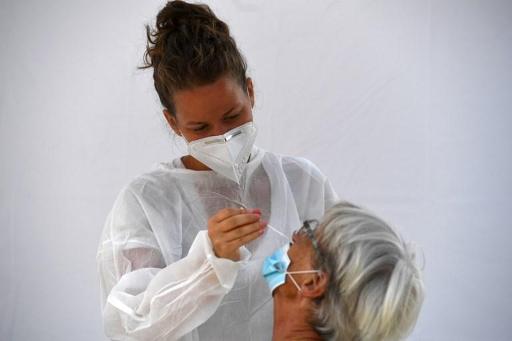Travellers coming back to Belgium after staying in a red zone, and people who have been in close contact with a person infected with the new coronavirus (Covid-19) can now go directly to a centre or some laboratories for a PCR test.
They will need to present a code sent to them by text message under a new procedure, adopted on Friday, by the Belgian health research institution, Sciensano. They will no longer need to consult a general practitioner first, but are requested to do so if they test positive or develop symptoms.
Since 1 August, people returning to Belgium after being out of the country for longer than 48 hours need to fill in a Passenger Locator Form, showing their travel history. This applies to all trips abroad, whatever the means of transport. It also enables the returning traveller to know if they are coming back from a high-risk zone.
Anyone returning from red zones but who shows no symptoms will receive a text message with a “Coronavirus test prescription code,” enabling them to go for the test.
Until now, they received a message asking them to isolate themselves and consult a doctor, who would then tell them where to do the test. They would then receive a second text message enabling them to go and do the test.
Related News
- Coronavirus tests will be possible at Brussels Airport from September
- Set up Covid-19 testing centres in airports, train stations, Brussels mayor says
- Sniffer dogs could be used to detect people infected with coronavirus
“This PCR test can now be done directly in a centre or a laboratory, without a prescription, as long as they can verify the validity of the prescription code for the patient in question who also has to fill in an electronic form, required for contact tracing,” Sciensano explained.
“For that, the laboratory or centre needs to be contacted by phone, online or through one’s general practitioner,” depending on the way things are organised locally, Sciensano added.
People with symptoms are asked to contact their GP by phone and provide them with their travel history.
Sciensano also recommends that asymptomatic travellers returning from an orange zone also do the test even if it is not compulsory for them. “If, in consultation with the doctor, it is decided to do a test, that must be done by the general practitioner or in a centre,” said Sciensano. Additionally, they are advised to go into a voluntary quarantine.
People who have been in close contact with people infected with Covid-19 can also go directly to a centre or laboratory, using a code sent by text message.
This applies to persons identified through contact tracing and who have stayed in the same room, or another enclosed environment, with an infected person for over 15 minutes, did not always remain 1.5 metres from them and/or touched the same objects.
The Brussels Times

